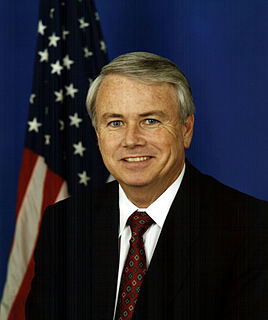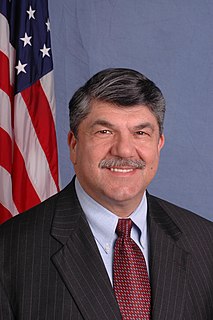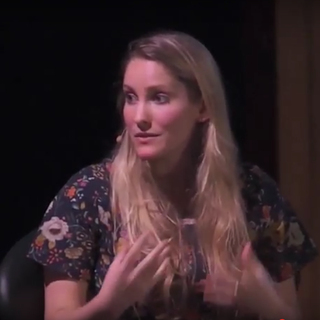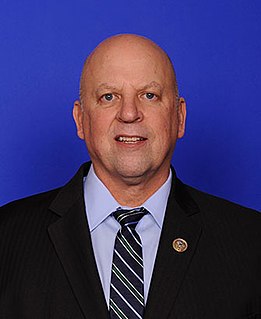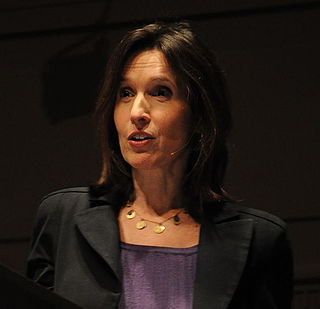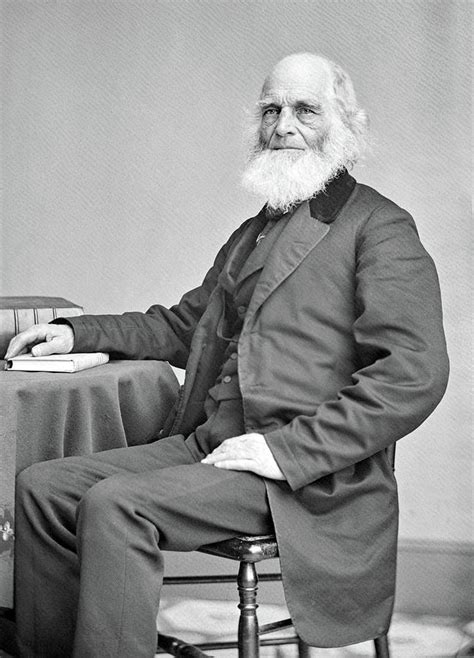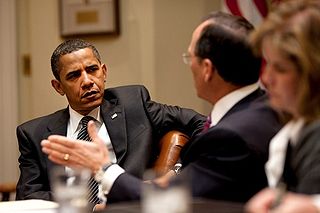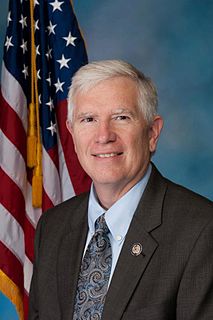Top 872 Wages Quotes & Sayings - Page 12
Explore popular Wages quotes.
Last updated on December 23, 2024.
The discovery of the North Pole is one of those realities which could not be avoided. It is the wages which human perseverance pays itself when it thinks that something is taking too long. The world needed a discoverer of the North Pole, and in all areas of social activity, merit was less important here than opportunity.
A duped newspaper or magazine could contend that a fiction-spouting journalist obtained part of his salary via fraud, and use a criminal proceeding to try and recoup that money. Given the profession's notoriously low wages, however, it's probably not worth the publicity headache and legal fees. No news organization has ever pursued such a case.
Julia progresses from cradle to grave, showing how government makes every good thing in her life possible. The weak economy, high unemployment, falling wages, rising gas prices, the national debt, the insolvency of entitlements - all these are fictionally assumed away in a cartoon that is produced by a president who wants us to forget about them.
As it becomes more and more difficult to get land, so will the virtual enslavement of the laboring-classe s go on. As the value of land rises, more and more of the earnings of labor will be demanded for the use of land, until finally nothing is left to laborers but the wages of slavery -- a bare living.
Union members not only earn higher median wages; they are more likely to have paid sick leave, short-term disability, and employer-provided child care. Giving people a voice at work - the ability to organize and negotiate for their fair share of the value they helped create - is absolutely essential to a growing, vibrant middle class.
In fact, for the majority of the population, wages and incomes have stagnated and conditions have gotten worse. So they are asking, "what did I do wrong?" And the answer that the talk show host is giving them is convincing, in it's internal logic. It's saying, "what's wrong is the rich liberals own everything, run everything, they don't care about you; therefore, distrust them" and so on.
This relationship is the foundation for the argument, made by some trade unionists and labour advocates, that high wages can actually be "good for business". The precedent set by Henry Ford in 1914, who offered workers $5.00 per day (a very high wage at the time) so they could afford to buy the same cars they made, is often invoked.
A monopoly granted either to an individual or to a trading company has the same effect as a secret in trade or manufactures. The monopolists, by keeping the market constantly understocked, by never fully supplying the effectual demand, sell their commodities much above the natural price, and raise their emoluments, whether they consist in wages or profit, greatly above their natural rate.
Higher minimum wages, full-employment programs, early-childhood education: Those kinds of programs are, by design, universal, but by definition, because they are helping folks who are in the worst economic situations, are most likely to disproportionately impact and benefit African Americans. They also have the benefit of being sellable to a majority of the body politic.
Historically in restaurants, the service staff is awarded significantly higher wages than cooks and other staff who prepare the food on which a restaurant's reputation is based. The gap in pay is so great that it is becoming increasingly difficult for young cooks to pursue their passion at the rate of pay restaurants are able to afford.
Free migration within Europe means that countries that have done a better job at reducing unemployment will predictably end up with more than their fair share of refugees. Workers in these countries bear the cost in depressed wages and higher unemployment, while employers benefit from cheaper labor.
The trade unions are a long-established and essential part of our national life. We take our stand by these pillars of our British society as it has gradually developed and evolved itself, of the right of individual labouring men to adjust their wages and conditions by collective bargaining, including the right to strike.
I've had very little negative pushback. I think people in the Senate know that I have believed, for a number of years, and have been outspoken that we need to listen to what the American people are telling us, and we need to focus more on the well-being of people who make lower wages, $50,000 and below.
Ever since the economic crisis in 2008, millions of people have accepted cuts in all sorts of things - from real wages and living standards to benefits and hospital care - without any real opposition. The cuts may be right, or they may be stupid - but the astonishing thing is how no-one really challenges them.
I think what you've got are millions of people who are in trouble today. They really are. They're confused. They're working longer hours for lower wages. They're seeing productivity going up but their kids are worse off economically than they are. They're looking at a campaign finance system in politics and they see corruption, big money buying elections. Nobody in Congress is listening to them.
Hillary Clinton's position on policy on markets and trade is very plain, which is we'll do trade deals but only if they meet three criteria, increase American jobs and wages and are they good for national security. If they are and if we can enforce them, then trade deals are okay. If not, we can't embrace them.
Wages for the ninety-nine percent have gone down, steadily, since 2008. They've gone down especially for the bottom twenty-five percent of the population. This means that they've gone down especially for Blacks and Hispanics and other blue-collar workers. Their net worth has actually turned negative, and they don't have enough money to get by.
The fact that traditionally 'female' jobs are paid less, that women end up working part-time because they're societally pressured into caring roles, and that having children has a negative impact on women's wages but a positive impact on men's, are all problems that should deeply concern us, not 'explanations' that can be happily accepted.
Profit is vital to human well-being. Profit is the payment to entrepreneurs just as wages are payments to labor, interest to capital and rent to land. In order to earn profits in free markets, entrepreneurs must identify and satisfy human wants and do so in a way that economizes on society's scarce resources.
Research has shown that middle-income wage earners would benefit most from a large reduction in corporate tax rates. The corporate tax is not a rich-man's tax. Corporations don't even pay it. They just pass the tax on in terms of lower wages and benefits, higher consumer prices, and less stockholder value.
Faced with such insecurity, labor unions seek a solution in demands for higher wages, shorter hours, pensions, and such things. But this approach takes monopolistic capitalism for granted, and accepts the unnatural division between property and responsibility as permanent. A much more radical solution is apt to come, and this may take either of two forms.
We need to roll back precarious employment models. Temporary and limited contracts were initially seen as a way of introducing more flexibility so as to bridge periods of need in certain phases of production. Some employers have taken advantage of the model to push down wages. In general, we must strive for equal pay for equal work.
I think we're at a really unique moment right now because the American people are waking up to the fact that it is a race to the bottom between these two corporate parties that are sending jobs overseas, putting downward pressure on wages, starving people out of healthcare, locking an entire generation into unpayable predatory student loan debt.
It seems to me both moral and practical that in the richest in nation in the world that someone working full time shouldn't live in poverty. And studies over the last 20 years in states where we have seen these minimum wage increases show there's no discernible impact on employment growth. In fact, what it does is line low-wage workers' pockets with higher wages.
Can anything be imagined more abhorrent to every sentiment of generosity and justice, than the law which arms the rich with the legal right to fix, by assize, the wages of the poor? If this is not slavery, we have forgotten its definition. Strike the right of associating for the sale of labor from the privileges of a freeman, and you may as well bind him to a master, or ascribe him to the soil.
The industrial economy which divides society absolutely into two portions, the payers of wages and the receivers of them, the first counted by thousands and the last by millions, is neither fit for, nor capable of, indefinite duration: and the possibility of changing this system for one of combination without dependence, and unity of interest instead of organized hostility, depends altogether upon the future developments of the Partnership principle.
I've been talking about income inequality in America for twenty years, and when I was president, people didn't pay much attention to it, probably because wages were going up. But I don't think I've given a single solitary speech since I left office that I hadn't talked about it. It's a problem around the world and within the United States. So these people have put that on the agenda.
Through job creation, quality public services and better working conditions, people, communities and countries can lift themselves out of poverty, improve livelihoods, engage in local development and live together in peace. This happens only when work is decent - environmentally sound and productive - provides fair wages, and is underpinned by rights
We are already well down the road toward a managed-trade regime. It would be far better to acknowledge that reality, and seek a set of reasonable rules, than to pretend that Ricardian trade is the norm and allow mercantilist states to overwhelm U.S. industry and ratchet down wages, in the name of free trade.
Our mission has been the protection of the wage-worker, now; to increase his wages; to cut hours off the long workday, which was killing him; to improve the safety and the sanitary conditions of the workshop; to free him from the tyrannies, petty or otherwise, which served to make his existence a slavery.
Private property works like circuitry in electronics, or piping in hydraulics. It conveys wages to the owners of labor power, as well as the various forms of nonwage property income to the owners of capital. In itself, it is no more responsible for maldistribution of purchasing power than the science of bookkeeping is responsible for bankruptcy.
Any reasonable economist will tell you that it's nearly impossible to isolate the impact of right-to-work laws on a state's job growth. A multitude of other factors intervene. However, one thing the numbers can show is that right-to-work laws have a negative effect on the wages of workers in that state.
We used to have food picked and used to have houses built and we used to have chicken properly processed and it was Americans that did it. If we are going to continue to utilize those goods, then what's going to have to happen is that the employers are going to have to elevate the wages in order to attract American workers to do those jobs.
We rarely hear, it has been said, of the combinations [that is, unions or colluding organizations] of masters, though frequently of those of workmen. But whoever imagines, upon this account, that masters rarely combine, is as ignorant of the world as of the subject. Masters are always and everywhere in a sort of tacit, but constant and uniform combination, not to raise the wages of labor above their actual price.
On the question of opposition, I think there are - when you want to send a signal if you're on the Democratic side that this is a very right wing cabinet at odds with so much of what [Donald] Trump said. And it's also going to be fascinating to see if your Republican Party in the congress actually goes along with those aspects of the Trump plan that are designed to raise wages.
I think raising wages, investing in infrastructure, making sure that people have access to good educations that equip them for the jobs of the future. Those are all agenda items that would help alleviate some of those economic pressures and dislocations that people are experiencing. The problem was I couldn't convince the Republican Congress to pass a lot of them.
Across Europe, not just in the U.K., the old Beveridge and Bismarckian variants of the welfare state have been dismantled. In their place has been erected a mish-mash of means-tested, behaviour-tested social assistance, with a growing tendency to force young unemployed into workfare schemes, which are helping to depress real wages.



